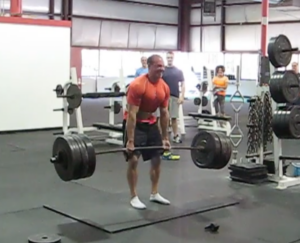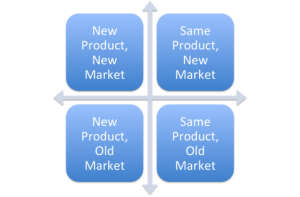
Fitness Professionals: Competency vs. Fit
I have written several times in the past about how whenever the time comes to expand our staff at Cressey Sports Performance, we only hire from our internship program. In hiring, the goal is to get someone who is both competent for the job and a good fit for your culture. We can teach that competency in an internship, but just as importantly, an internship give us 3-5 months to evaluate whether an individual is the right fit from a personality standpoint. We actively involve our current staff in hiring to make sure that they’re the ones helping to shape this culture. I can’t recall exactly, but I believe I initially heard the competency/fit discussion in a book from Richard Branson and his hiring practices at Virgin.
This is an important lesson for all businesses, but particularly in the fitness industry. Many of your clients aren’t intrinsically motivated to exercise; they probably don’t get as excited about rolling out of bed and getting to the gym as us fitness nerds do. Rather, they may be more extrinsically motivated by a gym culture that makes exercise more palatable or even fun. If you hire someone who hurts your culture because they aren’t a good fit in one way or other, your clients suffer.
What fitness professionals might not realize, however, is that the competency and fit consideration is also something that potential clients are considering in their mind (whether they recognize it or not) before they hire a trainer.
As an example, I am not a good fit if you are a ballerina. I might have all the knowledge that you need for a successful the design training program, but I don’t look the part, nor can I speak the language.
Likewise, if I weighed 350 pounds and looked like an NFL offense lineman, I probably wouldn’t be a good fit for the baseball players I train. The giant meathead persona actually turns a ton of them off. No matter how confident you are, being a bad fit overshadows that intellectual preparation.
I also wouldn’t be a good fit at Mark Fisher Fitness. My personality isn’t theatrical enough, and I’m not the most creative or extroverted guy in the world. My skill set really wouldn’t translate, especially since a lot of Broadway performers aren’t really interested in throwing a baseball 95mph.
“Fit” was something I had to overcome in my initial work with baseball players. Because I only played up until 8th grade, I had to ask a lot more questions and do a lot more listening. I had to strap on the catcher’s gear and catch bullpens. And, I had to work harder to become wildly competent on the actual training side to overcome the fact that I’m technically a baseball outsider. It’s worked out well, but I often wonder if success would have come a bit more easily if I’d be a guy who played baseball all the way through college.
I think “fit” is also the area where many fitness professionals really struggle as they work to market themselves. The accomplished bodybuilder who wants to attract general population fat loss clients may have all the knowledge needed to be successful, but if he plasters his website with shirtless pictures of himself, he comes across as a “me guy” who could never understand the needs of a 45-year-old mother of two. And he might not realize this “look” terrifies some of those potential clients – even though this marketing pitch might work if he’s trying to add other bodybuilders or fitness competitors as clients.
Likewise, a guy who loses 300 pounds to get to a fit 180 pounds might appeal to this more-easily-intimidated demongraphic, but not be a good fit at all for the competitive bodybuilder. Everyone has different wants, needs, and perceptions.
This quick observation has three key takeaways:
1. Competence is always of paramount importance, but it will be hard to show off your competence if you aren’t a good fit.
2. We all have huge blind spots of which we aren’t aware. Just as you strive to always work to improve your knowledge base and skill set, you should actively seek out people you trust to give you honest feedback about how they view your marketing message and how you present yourself.
3. This might be the most important thing: you will never, ever, ever, ever, ever be a good fit for everyone. If you try to be everything to everyone, you’ll wind up trying to ride a bunch of horses with one saddle. Having a few clearly defined “niches” usually is your best bet, and if you choose to expand into other niches, you’re probably better off hiring someone who’s a good fit for it. As I’ve said before, when it comes to long-term business development, look at this chart – and always try to trend down and to the right.






